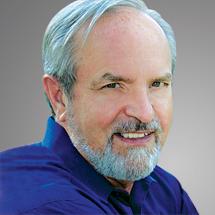
Overall, this album boasts a live drum kit, lower than octave bass, and sixties guitar and sentimentality. Song by song, the band shows they've got the chops and can keep up with Barney as he sways through blue-eyed soul, dances through subdued disco and rocks quite heartily through most of this offering. With but a few electronic flourishes, this is the stuff of the Partridge Family, not Electro in the slightest. Heartfelt lyrics about Love, Love, and um Love show Barney can actually write a lyric. The boys back 'im up with some mighty fine vocals as well. Oooh and Laaah are brought to the fore along with Yeah!
1.) Sink or Swim - rave up about a guy torn between a young mistress and a more mature lover.
2.) Twist of Fate - High stepping rocker that has kewl chord progressions.
3.) Summer Days - autobiographical tune with a backbeat.
4.) This is Home - minor keyed entry with sonorous vocal. Coming of age story set in L.A.
5.) Running out of Luck - 'Ooh Baby', 'Yeah Yeah Yeah' sentimental and sweet little ditty about the end of a relationship.
6.) Dynamo - the most electronic of these songs, Who's that I hear? Sounds like the Who keyboards there!
7.) Poisonous Intent - Yours Truly's fave on this disc. Good swinging rocker with disco interjections...but a flourish of electronics.
8.) These Changes - Brit Pop never died, one would think. Grandiose, even majestic music meandering through some nostalgic vocals here.
9.) Walk on Silver Water - Barney gets all metaphysical and stuff lyrics wise with some acoustic work that leaves one breathless.
10.) Shine Like the Sun - more sixties guitars with a good lead. Need I say more?
11.) Runaway - the most heartbreaking of this bunch, glittery and shimmery.
12.) Head into Tomorrow - the band gets the Led out with this one. Great acoustic flourishes ala' Jimmy Page. Interesting closer.
This is the a.m. radio of my youth. Great songs about girls, love and heartbreak. Well worth the ticket!




 d
d













